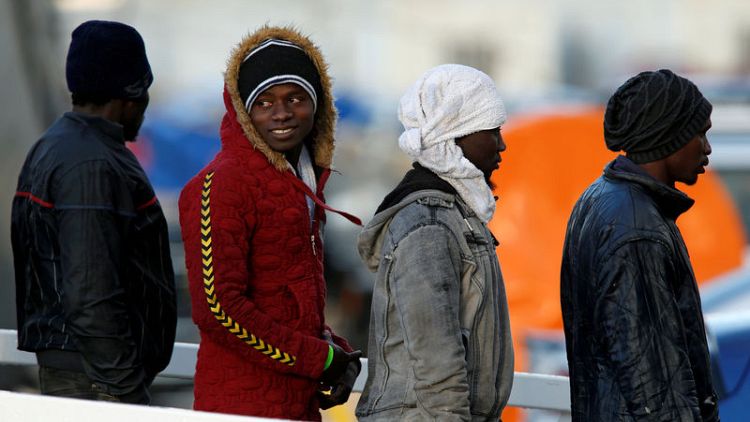By Clare Roth
BRUSSELS (Reuters) - The United Nations' refugee agency warned on Wednesday of a likely rise in anti-immigrant rhetoric ahead of European Parliament elections in May despite a fall in the number of migrant arrivals to Europe in 2018 to a four-year low.
Around 116,000 refugees and migrants entered Europe in 2018, the U.N. High Commissioner for Refugees said in its annual report, down from some 172,000 in 2017, 360,000 in 2016 and more than a million in 2015, when the continent experienced its largest influx since World War Two.
Commissioner Filippo Grandi said the politicisation of migration had made it impossible for countries to allow in even a handful of refugees and there was little hope of change before the elections, when populist and eurosceptic parties are expected to perform well.
"I foresee an actual exacerbation of that rhetoric in the next few months, unfortunately," he told Reuters.
Grandi said that even humanitarians understood that anti-migrant rhetoric had won a lot of votes for some politicians. However, he added that he believed compromises on migrant issues with EU lawmakers could be found after the May elections.
"In the end it is in the interest of everybody, even these (populist) leaders, to find solutions," he said.
Populist and anti-immigration candidates and parties in countries such as Poland, Italy and Hungary hope to win additional seats in the EU assembly.
Italy's populist government, which took office last year, has closed its ports to humanitarian vessels in an effort to force other European Union nations to take a bigger share of migrants rescued in the Mediterranean.
The UNHCR report said that, although migrant arrivals had decreased, the number of deaths per attempted crossing of the Mediterranean had risen.
Grandi said this was because the number of campaign group rescue boats had fallen from 10 in 2015 to two now, and because people are taking increasingly dangerous routes due to Italy's tough stance.
(Reporting by Clare Roth and Antonia Kerrigan; editing by Philip Blenkinsop and Gareth Jones)
